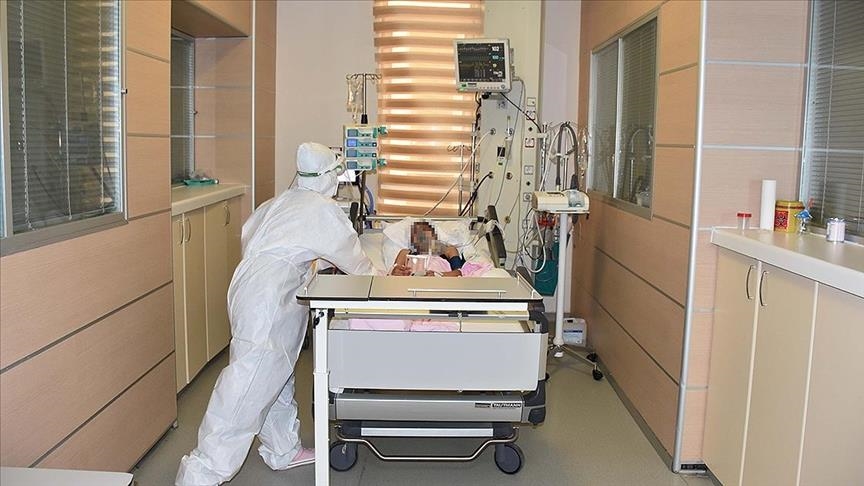On Sunday, Turkey’s Ministry of Health reported 29,058 new Covid-19 cases, with deaths exceeding 150 for a second day in a row. Medical professionals are complaining of overwork and ICU units filling up rapidly. Erdogan could declare a 2-3 week national lockdown during the holly month of fasting, Ramadan, which starts on 13 April.
Currently, positive/test ratio is running at 14%, meaning 14 out of hundred Covid-19 tests turn out positives. This ratio has doubled over the last month, as daily deaths nearly tripled.
According to Reuters, Turkey’s top medical group called on the government on Friday to reverse its course and tighten COVID-19 restrictions amid a surge in infections, including by imposing curbs on social mobility and contact.
Daily infections and deaths have spiked over the past month after Ankara announced a period of gradual return to normal life. Turkey recorded 29,081 new cases on Friday, just below this year’s highest number.
Health Minister Fahrettin Koca said on Thursday the pandemic would be under control by late May or June, adding that citizens must wear masks and practice social distancing.
But the Turkish Medics Association (TTB) said the government was unable to manage the pandemic and called the current conditions in Turkey a “social assassination”.
“A surge of cases in a short time show that Turkey, just like many other countries in Europe, is facing a tsunami. While this surging tendency continues, we need more serious measures strengthened by public solidarity,” the TTB said.
Without naming names, the doctors’ group called for those responsible at the health ministry to resign, as well as for more transparency on daily coronavirus figures and variants detected, vaccine procurements, and the criteria used to classify risks by province.
“Mobility in very busy streets in cities should be decreased. Mass contacts between people in enclosed areas should be limited,” it said.
President Tayyip Erdogan and his government came under fire this week for holding a party congress with thousands of people, many of whom were seen violating social distancing rules, not wearing or improperly wearing masks.
Since inoculations began on Jan. 14, Turkey has administered 14.6 million shots and 8.2 million people having received a first dose. It expects to receive 100 million doses of vaccines from various suppliers by the end of May.
It is not clear whether firm contracts have been signed for these vaccines, because on Friday President Erdogan told reporters that negotiations continue”. Even if 100 million doses do arrive at the end of May, herd immunity will not be reached before end-June, the earliest, at which time a third of the tourism season will be wasted, with devastating effects on service industries.
Some medical experts suspect that Turkey is developing its own variants, which may or may not be more contagious. Genome sequencing is very slow in Turkey, which renders drawing an accurate map of which variants predominate in regions.
T24 independent news site had reported during the week that Erdogan may consider a lockdown in Ramadan, but economic costs and the psychological shock to citizens could be huge. On Friday, the chairman of Turkey’s powerful small merchants confederation, TESK, Mr Bendevi Palandoken strongly objected to another lockdown, urging citizens to abide by social distancing measures.
Members of main opposition party, CHP, claim that death figures are understated, pointing to evidence from Ankara where annual deaths have doubled vs 2020.
Follow our English language YouTube videos @ REAL TURKEY: https://www.youtube.com/channel/UCKpFJB4GFiNkhmpVZQ_d9Rg
And content at Twitter: @AtillaEng
Facebook: Real Turkey Channel: https://www.facebook.com/realturkeychannel/
